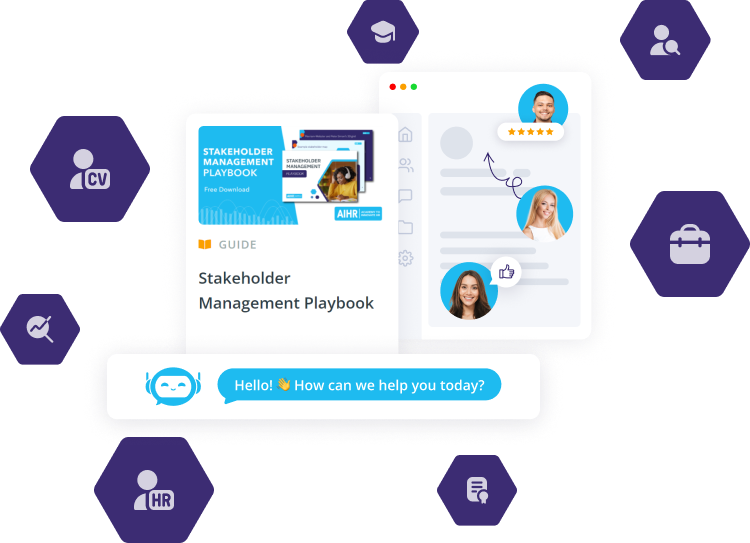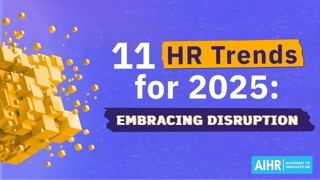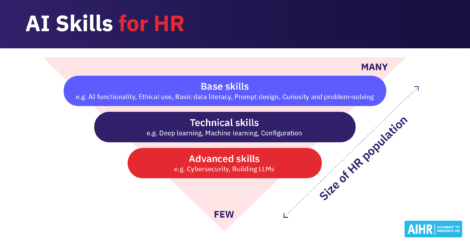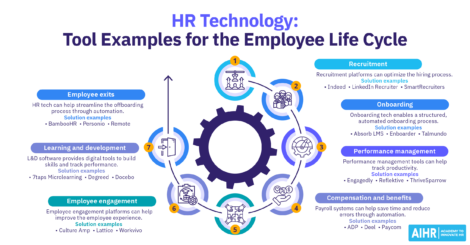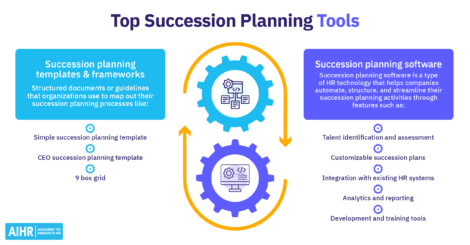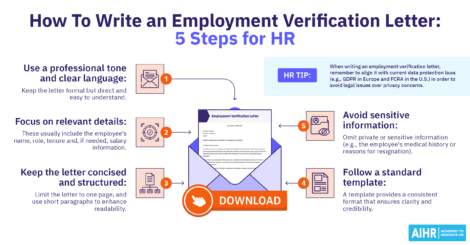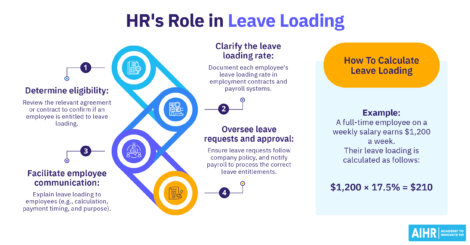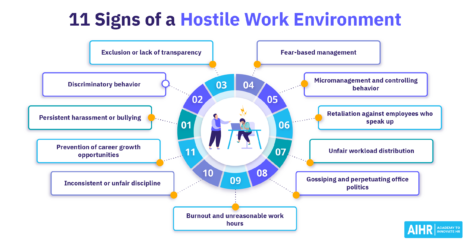Digital Disruption in HR: 3 Actions for Sustainable Value
“Every successful organization has to make the transition from a world defined primarily by repetition to one primarily defined by change,” said the social entrepreneur Bill Drayton. HR is no exception, and it has to learn how to capitalize on digital disruption for impact.

The digital HR market has experienced remarkable growth, driven by an increased emphasis on automation, AI, and the strategic impact of technology. Currently valued at $62.6 billion, the HR technology market is projected to exceed $90 billion by 2026 in the U.S. In the last year, 78% of organizations reported increased spending on HR technologies, and the trend is likely to continue.
The advantages of digital transformation and disruption in HR are well-documented: enhanced efficiency, broader employee reach through on-demand self-service, and improved business decision-making enabled by advanced analytics.
Despite considerable investments in technology, these efforts have often failed to deliver the expected value to employees and have not substantially enhanced the digital agility of HR professionals.
This article explores why digital disruption in HR often fails to create the desired impact, highlights the importance of investing beyond just technology, and outlines three key actions HR professionals should take.
Contents
What is digital disruption in HR?
Why do businesses struggle to capitalize on digital disruption in HR?
How to successfully navigate HR digital disruption
What is digital disruption in HR?
Digital disruption in HR refers to the transformative impact that digital technologies have on Human Resources practices, processes, and strategies. This disruption is characterized by the rapid introduction of new digital tools, platforms, and systems that significantly alter how HR functions are performed.
Rather than an evolution or improvement, HR digital disruption represents a fundamental shift that can make the existing way of doing things obsolete or considerably less effective.
In essence, digital disruption in HR is “disruptive” because it forces organizations to rethink and often overhaul their established processes and strategies to keep pace with rapid technological changes. Those who fail to adapt may find themselves at a competitive disadvantage.
We discussed HR technology trends with Vinay Singh, Talent, Organization & Digital AI expert. Watch the full interview below:
Why do businesses struggle to capitalize on digital disruption in HR?
Many organizations find it challenging to fully benefit from the disruptive changes in digital HR because the developments and advancements are often abrupt, leaving little time to properly align technology adoption with business objectives or prepare the workforce. This rapid pace leads to underutilized tools and missed opportunities for effective transformation.
Here are three reasons why organizations struggle to fully harness the potential of digital disruption in HR:
Reason 1: Misalignment between technology adoption and employee experience
86% of HR leaders identify digital transformation as a strategic priority for their organizations, with 63% emphasizing that these investments aim to improve the employee experience. However, while adopting AI and digital tools in HR is often seen as a direct path to enhancing employee experience, this assumption is simplistic and potentially misleading.
While AI and digital transformation can streamline processes, improve efficiency, and offer more personalized services, these benefits do not automatically translate to a better employee experience. A recent report notes that although 79% of U.K. leaders have deployed multiple AI applications, many organizations struggle to achieve the expected outcomes.
The relationship between technology adoption and employee experience is complex and multifaceted. For instance, implementing new tools without considering the specific needs and preferences of the workforce may lead to frustration rather than satisfaction. Moreover, digital tools can sometimes create a sense of alienation if they replace the human touch in areas like performance management or employee support, where personal interaction is crucial.
The success of AI and digital initiatives in HR depends on how well they are integrated with a company’s culture and how effectively they enhance—not replace—human connections. To truly improve employee experience, HR must ensure that these tools are user-friendly, inclusive, and supportive of employees’ wellbeing while providing flexibility to address individual needs. Therefore, adopting AI and digital solutions should be carefully planned, with a clear focus on enhancing the human experience within the organization rather than solely on technological advancement.
What does digital transformation look like? Don’t try to say, “I’ve got to catch, you know, Elon Musk or Microsoft, Google.” Look at where you’re at, and then figure out, “Were have we systemically been lacking? Where have we put no advancement in?”
And sure, we could leapfrog, but take a look at what your digital transformation is now. And if you don’t have a digital transformation, what’s it going to take for you to get there?

Reason 2: The “unconsidered” cost of adopting AI and digital HR
The promise of digital transformation in HR is alluring: driving cost efficiencies, streamlining processes, and enabling a more strategic focus. However, the journey to achieve this transformation is fraught with challenges, particularly regarding securing the necessary budget.
Despite the clear benefits, HR departments often struggle to justify the financial investment required for these technological advancements. Recent research reveals that while 75% of HR leaders acknowledge the necessity of digital transformation, only 25% feel confident they have the budget to pursue these initiatives effectively. This financial constraint forces HR to create in-house solutions that are not integrated or seamless rather than procuring readily available tools and technologies that are more efficient and tested.
Developing these in-house solutions demands significant time, effort, and resources, often pulling HR professionals away from their other critical responsibilities of talent management, employee engagement, and more. This situation is further amplified by the perception of HR as a “cost center,” a view that pressures HR to automate not to enhance capabilities but rather to reduce headcount and operational costs.
Such pressures can lead to a culture of distress within HR departments, where the focus shifts from innovation and employee experience to merely cutting costs. This hampers the potential benefits of digital transformation and also risks demoralizing the HR team, who may feel undervalued and overburdened. For HR to thrive in the digital era, organizations must shift their perspective, recognizing HR’s strategic value and ensuring that technology investments are made to enhance, not diminish, the department’s capabilities.
Reason 3: Overlooking the importance of digital mindsets in HR technology adoption
Investments in digital HR often prioritize technology, tools, and data. While these elements are crucial, they alone are insufficient. HR professionals struggle to fully utilize these tools without proper upskilling, leading to a lack of confidence in applying new technologies and underutilizing these resources. Our data reveals a concerning trend: only 23% of HR professionals feel confident in their digital skills, and a mere 2% prefer engaging in digital activities over other HR-related tasks.
Building digital agility requires technology and a concerted effort to develop the mindset and skillset necessary for HR professionals to thrive in a digital environment. Our study of over 850 HR professionals showcased that only 64% use HR technology to fully deliver on business strategy and that most cite a lack of confidence and competence as barriers to success.
How effective is this brand-new technology to your agenda? I can’t tell you how many times a senior executive will say they bought something, it wasn’t as advertised: “We bought something, but we didn’t have the capabilities to actually be using it. We could use it, but we were so busy with these other things that were more pressing that we bought this extra component onto our platform, and we just didn’t get around to it.”

How to successfully navigate HR digital disruption
Embracing digital disruption in HR should always begin with a clear business case that highlights the rationale and intent behind why HR wants to drive digital transformation. The business case needs to be closely aligned with business objectives, highlighting how digitalizing HR will benefit the business, where it will focus, and what will be required to achieve success.
Adopting AI and digital HR in a process that does not contribute to the overall strategy would lead to project failure and may result in loss of time and investments. Decision-making should be based on organizational priorities, employee feedback, and data.
In addition, when investing in HR technologies, a more holistic approach is required regarding enabling HR professionals with the right skills, equipping users of HR technologies to optimize their value, and delivering against a set digital HR roadmap that develops and matures HR technology over time.
We propose three actions that HR needs to take.
Action 1: Prioritize investments aligned to a digital roadmap
Investing in HR technology must be a strategic and evidence-based process rather than a series of ad-hoc decisions. Unplanned investments often result in fragmented systems, poor integration, and a gradual decline in digital maturity. To avoid these pitfalls, HR leaders must develop a comprehensive digital HR roadmap that aligns with the organization’s broader goals and ensures that each technology investment contributes to a cohesive, efficient HR ecosystem.
A well-crafted digital roadmap should include a thorough assessment of the current HR technology landscape, a clear vision for the future state, and a focus on integration and interoperability. This roadmap serves as a guide, helping organizations identify which technologies align with specific areas of their HR architecture. Additionally, it ensures that new systems work in sync with existing infrastructure, improving data flow, user experience, and decision-making.
Furthermore, successfully implementing HR technology requires attention to change management and continuous evaluation. Technology investments should be accompanied by a robust change management plan that fosters adoption and minimizes disruption. Regular reviews of the digital roadmap, emphasizing metrics and KPIs, will ensure that the organization remains agile and adapts to new opportunities and challenges.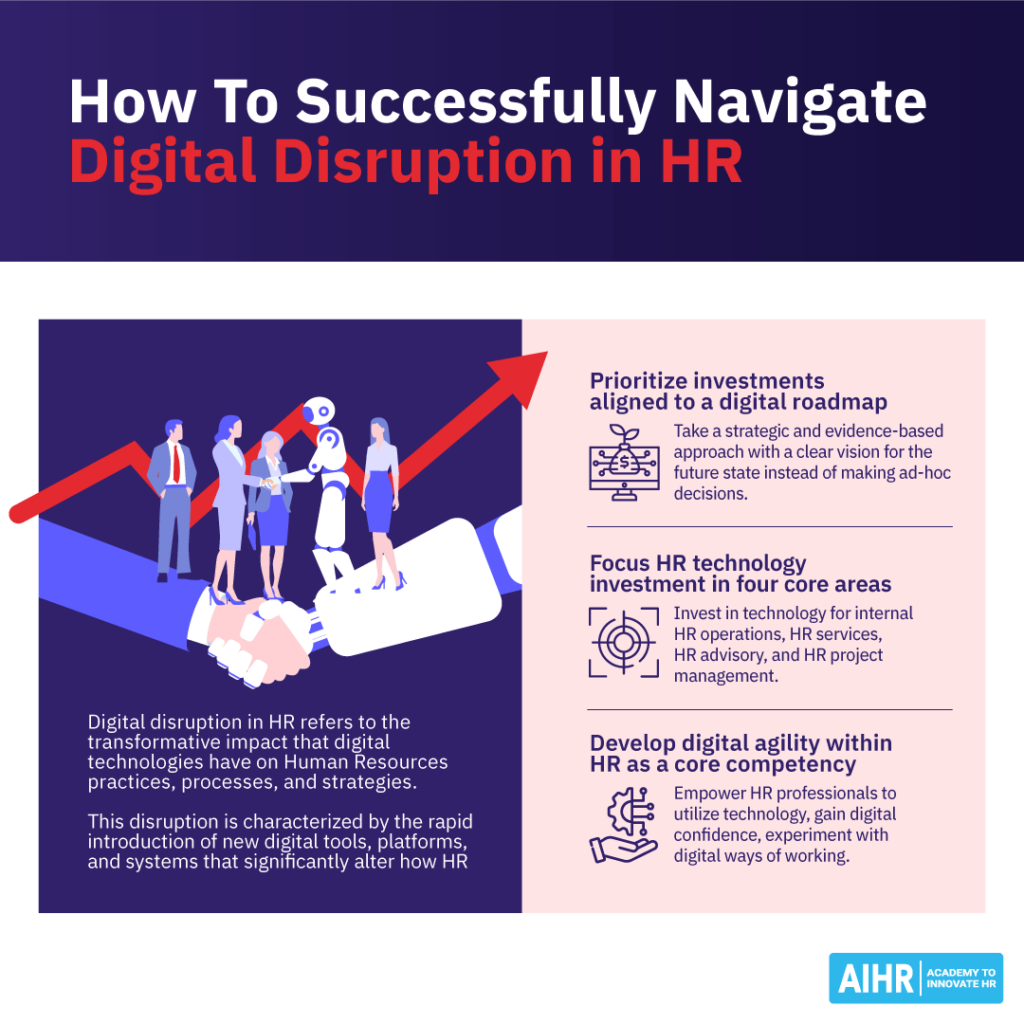
Action 2: Focus HR technology investment in four core areas
HR can optimize AI and digital adoption by tailoring strategies to the specific needs of each function and being more specific and intentional in where HR invests. We see four key areas of investment:
- Internal HR operations: AI can automate repetitive tasks such as payroll processing and attendance management, freeing up time for HR teams to focus on more strategic initiatives.
- HR services: AI-driven chatbots and self-service portals enhance the employee experience by providing instant support and answers to common queries, improving efficiency and accessibility.
- HR advisory: AI offers valuable data-driven insights, such as identifying potential high-performers who are at risk of leaving the company. These insights can inform retention strategies, succession planning, and targeted development programs, enabling more proactive talent management.
- HR project management: Digital tools streamline project management and collaboration, making it easier for teams to work together effectively and meet deadlines efficiently. With the help of these tools, HR teams can complete tasks on time, effectively collaborate across departments, and gain clear visibility into project progress, leading to more efficient execution.
HR should assess the complexity, data requirements, and impact on (digital) employee experience in each area to maximize value and ensure alignment with overall business objectives.
Heidelberger Druckmaschinen AG’s journey to bundle and digitize all employee data worldwide
Heidelberger Druckmaschinen AG, a global leader in printing technology joined forces with Deloitte Germany to digitally transform their HR practices.
Faced with outdated and fragmented HR processes, the company aimed to create transparency and interconnectivity across its global HR operations. The transformation focused on standardizing and digitalizing HR processes, previously managed through paper-based or Excel systems.
The project included implementing the HR4Future platform, powered by Workday, to centralize and streamline employee data management, learning, and absence tracking across all international locations. This platform ensured compliance with local regulations and improved HR operations’ overall efficiency and effectiveness.
The successful completion of this transformation within eleven months provided Heidelberger Druckmaschinen AG with a unified, up-to-date HR database accessible globally, enhancing employee self-service and optimizing HR reporting. The company now benefits from standardized processes, improved data accuracy, and a more user-friendly HR management system, enabling better decision-making and strategic planning.
This digital HR transformation has not only modernized the company’s HR functions but also positioned it to respond more effectively to future workforce challenges, with the flexibility to expand the platform as needed.
Action 3: Develop digital agility within HR as a core competency
Our T-shaped HR Competency Model highlights digital agility as one of the five core competencies required to be a successful HR professional.
Developing digital agility in HR goes far beyond operating software, implementing HRIS, or automating tasks like Excel sheet management. It’s about fundamentally transforming how HR operates to unlock new levels of efficiency and effectiveness through technology. Being digitally agile requires fully integrating technology into every aspect of HR, from optimizing routine processes to enabling data-driven decision-making.
We see digital agility as the outcome of successfully being empowered to utilize and scale technology, building the skills to gain digital confidence, and creating opportunities to experiment with and gain exposure to digital ways of working.
When HR becomes digitally agile, it positions itself as a crucial driver of organizational success, leveraging technology for automation and innovation in managing people, developing talent, and building a future-ready workforce. This mindset requires continuous learning, adaptability, and a commitment to aligning digital strategies with overall business objectives, ensuring that technology enhances, rather than replaces, the human element in HR.
Henkel APAC: Building Digital HR Capabilities with an In-House HR Learning Academy
Henkel’s 140 years of innovation, continuous improvement, and delivering excellence are only possible with a strong focus on employee development. In fact, “developing people with passion” is one of Henkel’s core leadership commitments.
Together with the Academy to Innovate HR (AIHR), Henkel established its first HR Learning Academy dedicated to developing digital skills for its top HR talent. The academy’s ultimate goal is to empower HR to increase operational efficiency and maximize its impact on business outcomes.
Final words
Human Resources teams must approach HR transformation and digital disruptions with a fresh perspective, aligning these innovations with the organization’s strategic goals. Being intentional about how and where to invest sets HR teams up for success by adopting a holistic view that considers people, processes, and technologies.
Learn more
Related articles
Are you ready for the future of HR?
Learn modern and relevant HR skills, online

